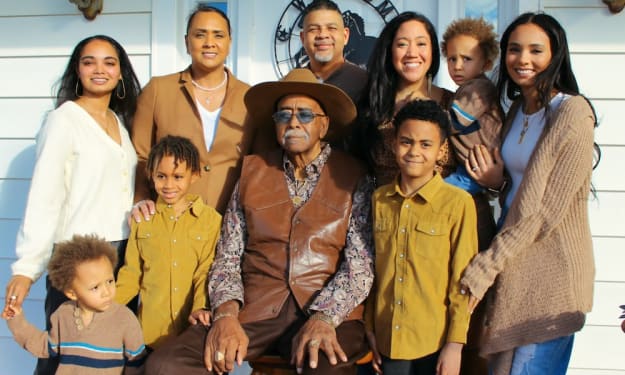
When most people think about what it means to live independently, the first thing that comes to mind would be moving out. Having your own place is usually seen as the first step of paving your own way in the world, and there is a perception that people who live at home past a certain age are not as capable as their peers who have moved out.
Kids who don’t move out are seen as lazy and incapable of taking care of themselves while the parents are seen as overindulgent and spineless for letting their kids supposedly freeload in their homes. While this is admittedly more of a Western view, even in Eastern societies where such a living arrangement is more common, there are certain negative perceptions as well. Children in such families are seen as being forced to conform to outdated practices and have had to compromise on promising futures all in the name of being a good son or daughter.
No matter how you square it, people who live at home risk being judged as either incompetent, outdated, or at the mercy of their parents. But let’s pause to look at the state of the world today. Prices are rising higher than ever all across the board. Everything from housing to tuition to childcare is way more expensive than it was 20–30 years ago. It’s not going to be as easy for young people today to be able to move out and get a place of their own the way their parents did. Even the generation who could afford to move out may now find it difficult to maintain their homes into their old age. With people living longer and expenses rising, many retired people end up outliving their savings.
If “leaving the nest” is becoming less and less feasible, perhaps we should change our perceptions on what exactly constitutes independent living. Not everyone who lives at home is a moocher who leeches off their parents and it is possible to share a home but live your own lives. I know that better than most.
Coming from an Asian family, culture did play a big part in how we lived. Whether you were rich, ordinary, or poor, you stayed with your family. However, independence was also strongly encouraged within our family. Basically, everybody was free to do as they pleased provided that they contributed in some way to the upkeep of the house. Those who worked contributed to bills and groceries while those who didn’t contributed to chores like cooking, cleaning, and babysitting. The retired relatives could do either or both depending on their individual circumstances. While everybody lived together, nobody lived off each other. Besides the upkeep of the house, there were no other shared obligations.
Perhaps living together should no longer be a thing of the past and be looked at more favourably. If done right, everyone involved stands to benefit and it could very well be that head-start you need to get your foot in the world or the key to securing that happy retirement.
Why you ought to consider this
As someone who has lived either with or close to family my entire life, I may be a bit biased about the arrangement. However, here are a few things you should consider if you’re planning to live at home, move back or open your own home to your kids or parents. Mind you, that the main consideration should always be the ability of every able-bodied adult to contribute to the household. Nobody should be living off anyone else especially when they are in a position to contribute and of course, everyone involved should be able to get on reasonably well with one another.
You can get more but spend less
One of the most appealing things about continuing to live with family is this. You can have a higher living standard but at the same time, pay much less for it. If you are a child living at home, not moving out will allow you to save significant amounts of money and will put you in a better position financially. It will be far cheaper to contribute to a portion of the household expenses than it will be to buy or rent a place of your own. This will allow you to focus more on things such as paying off any student loans and building up your own savings for things such as a car or starting a family of your own. If necessary, you can even use the money saved to renovate the existing house to accommodate a spouse and children, allowing them to enjoy a more comfortable life without needing to spend as much.
If you are a parent or grandparent, your financial burden is eased too. You will no longer have to worry about exhausting your savings on the upkeep of your house and can rest assured that you will have enough to enjoy your retirement or take care of whatever medical needs that may come with age. With the money saved, it may also be more feasible to make your own changes to the house in order to accommodate your age and condition. Adding things such as stairlifts, handlebars or even hiring a professional caregiver are far more affordable if you do not have the added responsibility of maintaining an entire home on your own.
From personal experience, living together instead of moving out into separate homes allowed us to enjoy a more comfortable lifestyle. Most of my relatives worked average middle-class jobs but we were able to live in a large bungalow house big enough to accommodate five generations because everybody could concentrate their incomes on a single home.
In fact, it was much cheaper to share the responsibilities of maintaining one bigger house on multiple incomes than 6–7 smaller individual ones. My relatives were able to save more money and still enjoy a better lifestyle, some were even fortunate enough to have a small windfall of savings by selling off or renting their previous homes and moving in. If you can tolerate sharing a bit of space with your family, you can live cheaper and better at the same time.
In some situations, it may be difficult to move back into or make changes to an existing home to accommodate more people, especially when new families and elderly people are involved. It could also be a practical option for separate family units to each sell off their homes and buy a new one, built to suit everyone’s needs. If everybody involved is working or is in a position to contribute, you’ll also be able to upgrade your lifestyle and downgrade your budget at the same time.
The Emotional Benefits of Peace of Mind
Living with family can also allow you to benefit on an emotional level as well. First, there will be the peace of mind of knowing that you are in a more secure position financially than you may have been if you got a place of your own. It is emotionally satisfying to be able to have money saved in case of emergencies and also be able to afford a better lifestyle at less cost than if you had gone off on your own.
If you have young children, you can rest easy in the knowledge that they will not be left unsupervised in your absence. Besides saving money on babysitters, you will not have to worry about the people watching your child when you’re at work. Especially if it is your parents or in-laws who babysit, you can afford to dedicate a bit more time to your work if it is agreeable with everyone. If your and your spouse’s jobs makes it difficult to send or pick up your kids from school or look after them on weekdays, knowing that there’s someone at home who can, makes all the difference, even more so when that person did the same for you when you were younger.
For an older person who lives with family, the emotional benefits are perhaps even more fulfilling. For an elderly person especially, loneliness and helplessness are things they struggle with quite frequently. With this living arrangement in place, an elderly person will not only feel less alone but will also not feel as much of a burden to their children and grandchildren by being able to contribute to expenses and handle their own care if necessary. In many ways, this fulfillment makes a world of difference to the quality of life of an elderly individual.
If you are from the “middle generation”, there’s a good deal of peace of mind too. You will be able to see firsthand how your children are doing, you have the opportunity to play a role in the lives of your grandchildren and you do not have to worry about your elderly parents since everybody is just down the hall. On top of that, it will do you good to know that you will not have to compromise on your retirement plans when the time comes. You’ll be able to go on that trip or start that new hobby knowing full well that your finances will remain intact.
Personally, what I enjoyed about living with my entire family was the feeling of never being lonely. There was always food on the table and someone to eat with, there was always someone to play with or someone to talk to and being able to sleep with the door unlocked because there were always people in the house. The fact that everyone was always doing something and bustling about gave me a feeling of security.
Conclusion
I won’t say that continuing to live at home or moving in with family is for everyone, at the end of the day there are different beliefs, lifestyles and family dynamics. That being said, it should at least be worth a thought. There’s no point leaving the nest if you’re going to be swept up in the wilderness.
Rather than gauging a person’s ability on whether they stay or leave the nest, it may be better in today’s time to determine someone’s independence on how well they build upon their nest. Living in one home with family should not imply an inability to take care of oneself or a forced conforming to customs and tradition. Instead, it should be viewed as a mutual decision taken to benefit all parties involved.
So long as everyone involved is able to contribute and not use any other person for a free ride, anybody living at home or with family can very easily live an independent life. While you may live in the same house, you will likely be working separate jobs, keeping separate schedules and with the money saved from pooling together your resources, you will soon see that you also have the freedom to pursue separate hobbies and passions. While this may not be everyone’s cup of tea, there’s no harm in taking a minute to consider this as an option especially in today’s time.
About the Creator
Isa Nan
Written accounts of life, death and everything in between






Comments
There are no comments for this story
Be the first to respond and start the conversation.